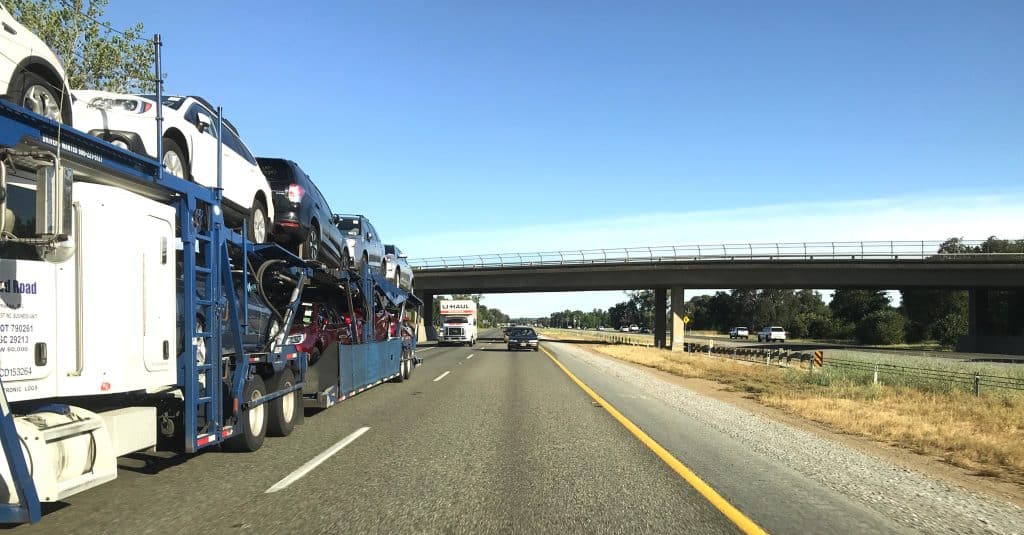Introduction To Bmw Classic Car Transport
When it comes to the transportation of classic cars, enthusiasts and owners understand that these vehicles are not merely modes of transportation but cherished pieces of automotive history. Among the most revered brands in the classic car community is BMW, a marque synonymous with precision engineering, timeless design, and a rich heritage. Transporting a BMW classic car requires more than just logistical know-how; it demands an appreciation for the vehicle’s legacy and meticulous attention to detail.
BMW classic cars, from the elegant 507 Roadster to the iconic E9 series, embody decades of innovation and craftsmanship. These vehicles often hold significant sentimental value and are frequently seen as investments due to their rarity and historical importance. Consequently, transporting such treasures necessitates specialized services that ensure their pristine condition is maintained from start to finish.
Professional BMW classic car transport services cater specifically to these needs by employing advanced techniques and equipment designed to safeguard every aspect of the vehicle. From custom-fitted trailers that prevent movement during transit to climate-controlled environments that protect delicate interiors from temperature fluctuations, every measure is taken to replicate showroom conditions throughout the journey.
Moreover, experienced handlers who are well-versed in the intricacies of BMW classics oversee each step of the process. Their expertise extends beyond mere logistics; they understand how vital it is to maintain original parts and finishes without inflicting any damage or wear.
In essence, transporting a BMW classic car is an exercise in preservation—a way to honor its storied past while ensuring it can be enjoyed by future generations. Whether moving a single vehicle or an entire collection, entrusting this task to specialists guarantees peace of mind for owners who view their cars not just as possessions but as pieces of living history.
The Importance Of Specialized Transport For Classic Bmws
Transporting a classic BMW is not merely a logistical endeavor; it is a meticulous process that demands specialized knowledge and equipment. These vintage vehicles, often considered automotive masterpieces, embody decades of engineering excellence and historical significance. Therefore, ensuring their safe and secure transport is paramount.
One of the primary reasons specialized transport is crucial for classic BMWs lies in their unique construction and materials. Unlike modern cars, which benefit from contemporary manufacturing techniques and robust materials, classic BMWs often feature delicate components that require careful handling. The engines, interiors, and bodywork of these vehicles are more susceptible to damage if not properly secured during transit. Specialized transport services employ advanced securing methods such as custom straps and soft tie-downs to prevent any undue stress on these fragile parts.
Additionally, the value associated with classic BMWs extends beyond mere monetary worth; they hold immense sentimental value for collectors who have invested significant time and resources into preserving them. Using general auto transport services can expose these irreplaceable vehicles to risks such as weather elements, road debris, or even theft. Enclosed trailers with climate control options are typically employed in specialized transport to shield these treasures from environmental hazards.
Expertise also plays a vital role in the safe transportation of classic BMWs. Professionals experienced in handling vintage cars understand the intricacies involved—such as optimal loading techniques and weight distribution—to ensure the vehicle remains in pristine condition throughout its journey.
In essence, specialized transport for classic BMWs is not just about moving a car from one location to another; it’s about safeguarding a piece of automotive history with the care and respect it deserves.
Types Of Transport Services Available For Bmw Classics
When it comes to transporting BMW classic cars, owners are often faced with a range of service options tailored to ensure the safe and efficient delivery of these valuable vehicles. The key is to understand the nuances of each method and how they cater to specific needs.
Enclosed transport is one of the most preferred methods for shipping BMW classics. This service offers a high level of protection against weather elements, road debris, and potential damage during transit. Enclosed carriers are typically equipped with advanced security features such as lift gates and soft tie-downs, ensuring that the car remains in pristine condition throughout its journey.
Open transport is another viable option, although it exposes the vehicle to external elements. It’s more cost-effective compared to enclosed transport but may not be suitable for highly valuable or meticulously restored BMW classics. Despite this exposure, reputable companies take extensive measures to secure the vehicle properly on an open trailer.
Specialized transport services cater specifically to rare or exceptionally delicate models within the BMW classic range. These services might include custom trailers designed for low-clearance vehicles or air-ride suspension systems that minimize vibrations during transit. Additionally, some companies offer climate-controlled options which are ideal for transporting cars that need consistent temperature and humidity levels.
Lastly, door-to-door service ensures maximum convenience by picking up and delivering the car directly from one specified location to another. This eliminates additional handling which could lead to potential damage.
Understanding these varied transportation methods enables owners of BMW classics to make informed decisions based on their specific requirements—whether prioritizing cost, convenience, or maximum protection—ensuring their prized possessions arrive safely at their destination.
Choosing The Right Transport Company For Your Bmw Classic
Choosing the right transport company for your BMW classic car is paramount to ensuring its safety and preserving its value. When it comes to these timeless vehicles, not just any transport service will do. You need a company with a proven track record in handling classic cars, particularly those as esteemed as BMWs.
Start by researching companies that specialize in classic car transport. These companies understand the unique needs of vintage automobiles, from their delicate finishes to their historical significance. They often offer enclosed transport options, which provide an added layer of protection against weather elements and road debris.
Experience is another critical factor. Look for a transport company that has been in the business for several years and has experience with high-value vehicles. This expertise means they are well-versed in securing classic cars properly during transit, minimizing the risk of damage.
Customer reviews and testimonials can offer insights into a company’s reliability and quality of service. Positive feedback from other classic car owners can be reassuring, indicating that the company has successfully transported similar vehicles without incident.
Insurance coverage is non-negotiable when transporting a BMW classic car. Ensure that the company provides comprehensive insurance that covers your vehicle throughout the journey. This coverage acts as a safety net should any unforeseen issues arise.
Lastly, consider communication and customer service quality. A reputable transport company will keep you informed at every stage of the process, providing peace of mind that your prized possession is in good hands.
In conclusion, entrusting your BMW classic car to the right transport company involves thorough research and consideration of specialized experience, customer feedback, insurance coverage, and excellent communication practices.
Preparing Your Bmw Classic For Transportation
Preparing your BMW classic car for transportation is a crucial step to ensure it arrives at its destination in pristine condition. The first consideration is to conduct a thorough inspection of the vehicle. Document any existing damages, no matter how minor, with detailed notes and photographs from multiple angles. This documentation serves as a reference point should any disputes arise regarding the car’s condition upon arrival.
Next, it’s essential to clean your BMW thoroughly. Dirt and grime can mask scratches and dents that might occur during transit, so a spotless exterior ensures that you can spot any new damage immediately. Pay special attention to the undercarriage as well, which could harbor debris that might dislodge during transport.
Mechanical preparation is equally important. Ensure all fluid levels are topped off, including oil, coolant, and brake fluid. Check tire pressure and make sure the battery is fully charged but disconnected to prevent any electrical issues during transit.
Another key step is securing loose parts and accessories inside the car. Items like removable antennas or custom spoilers should be either removed or firmly fastened to avoid damage from vibrations or movement during transport.
Finally, consider investing in protective covers specifically designed for classic cars. These covers offer an additional layer of protection against dust, debris, and potential scratches while your BMW is en route.
By taking these meticulous steps in preparing your BMW classic for transportation, you not only protect its structural integrity but also preserve its aesthetic value—ensuring it continues to be a source of pride for years to come.
Insurance And Legal Considerations In Classic Car Transport
Transporting a classic BMW car involves more than just arranging for a carrier to move your prized vehicle from one location to another. One of the most critical aspects is ensuring that you have the right insurance and are aware of legal considerations that may affect the transport process.
First and foremost, it’s essential to verify that your chosen transport company offers adequate insurance coverage. Classic cars like vintage BMWs often have substantial financial and sentimental value, so basic coverage may not suffice. You should inquire about the specifics of their policy, including what types of damages are covered and any limitations or exclusions that might apply. Additionally, check whether their insurance includes coverage for theft, natural disasters, and accidents during loading and unloading.
On top of verifying the transporter’s insurance, it’s advisable to have your own classic car insurance policy in place. This serves as an additional safety net should any issues arise during transit. It’s worth discussing with your insurer about whether they offer transit-specific coverage or if your existing policy already covers such scenarios.
Legal considerations also play a significant role in transporting a classic BMW. Different states or countries may have varying regulations regarding vehicle transport, including permits required for oversized loads or restrictions on certain routes. Ensuring compliance with these regulations can prevent legal hassles and delays.
Moreover, always ensure that all agreements with the transportation company are documented in writing. A comprehensive contract should detail every aspect of the service provided— from pickup and delivery times to liability limits—thereby protecting both parties in case of disputes.
Being well-informed about these insurance and legal aspects will provide peace of mind as you entrust your cherished BMW classic car to professional transport services.
Cost Factors And Budgeting For Bmw Classic Car Transport
When planning for the transport of a BMW classic car, several cost factors come into play, each influencing the overall budget. Understanding these elements is crucial to ensure a smooth and economically feasible process.
One of the primary considerations is the distance over which the vehicle needs to be transported. Longer distances typically result in higher costs due to increased fuel consumption, driver time, and potential wear and tear on transport equipment. Additionally, cross-country or international shipping introduces complexities such as customs fees and taxes that can further inflate expenses.
The choice between open and enclosed transport significantly affects budgeting. While open carriers are more economical, offering basic protection against road debris and weather conditions, they may not provide the level of security desired for a prized classic car. Enclosed transport, though more costly, offers superior protection from external elements and reduces risks associated with theft or damage during transit.
Another critical factor is the condition of the BMW classic car itself. Non-operational vehicles often require specialized equipment for loading and unloading, leading to additional charges. Similarly, modifications or custom features might necessitate tailored handling procedures that can drive up costs.
Insurance coverage also plays a pivotal role in budgeting for BMW classic car transport. Comprehensive insurance policies are essential to safeguard against potential damages during transit but come at an extra expense that must be factored into the overall budget.
Lastly, seasonal demand fluctuations can impact pricing; peak moving seasons usually see higher rates due to increased demand for transport services.
By considering these cost factors—distance, type of carrier, vehicle condition, insurance coverage, and seasonal variations—one can develop a realistic budget that ensures their BMW classic car reaches its destination safely and securely without unexpected financial strains.
Real-Life Stories And Testimonials From Bmw Classic Owners
When it comes to transporting classic BMW cars, real-life stories and testimonials from proud owners offer invaluable insights into the process, highlighting both the challenges and triumphs involved. Take, for instance, the story of John, a dedicated BMW enthusiast who owns a pristine 1972 BMW 2002 tii. For John, entrusting his cherished vehicle to a transport service was nerve-wracking. “I spent years restoring my 2002 tii to its original glory,” he recalls.
“The idea of handing it over to someone else felt daunting.” However, his experience with a specialized classic car transport company turned out to be overwhelmingly positive. The company provided regular updates and treated his car with the utmost care, ensuring it arrived at its destination in perfect condition.
Similarly, Sarah’s experience underscores the importance of choosing a reliable transport service. She owns a rare 1980 BMW M1 that required transportation across states for an exclusive car show. “I was worried about potential damage during transit,” Sarah admits. “But the team used custom-made protective covers and took extra precautions.” Her M1 arrived not just on time but in impeccable shape, allowing her to showcase it proudly.
These testimonials echo sentiments shared by many other BMW classic car owners who have navigated the complexities of vehicle transportation. From meticulous handling procedures to consistent communication and transparent pricing, their stories highlight how choosing the right transport service can turn an anxiety-inducing task into a seamless experience. These real-life accounts serve as both reassurance and guidance for anyone looking to transport their prized vintage BMW safely and securely.









